- Date & Time: Tuesday, December 14, 2021; 1:00 PM EST
Speaker: Prof. Chris Fletcher, University of Waterloo
MERL Host: Ankush Chakrabarty
Research Areas: Dynamical Systems, Machine Learning, Multi-Physical Modeling
Abstract 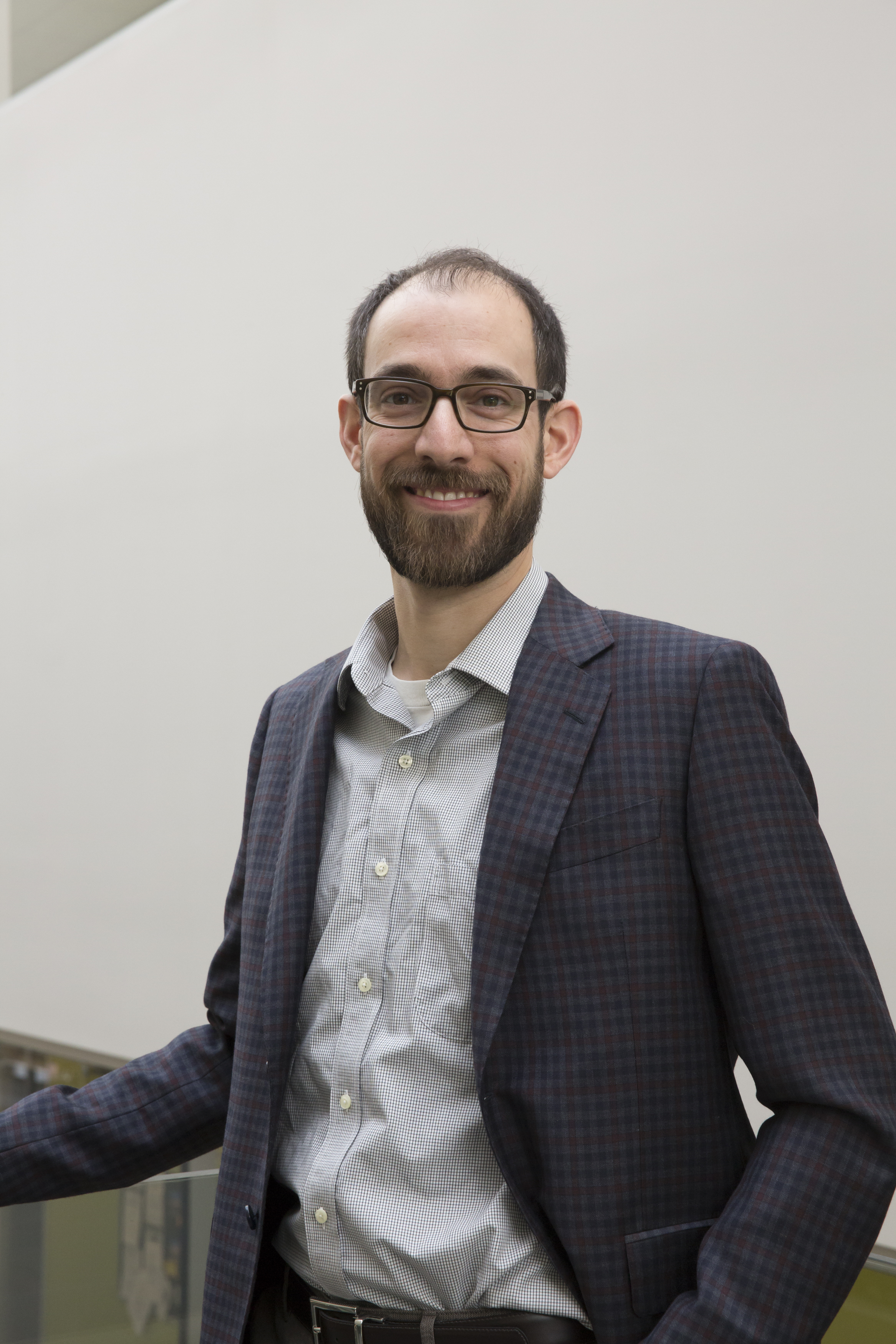 Decision-making and adaptation to climate change requires quantitative projections of the physical climate system and an accurate understanding of the uncertainty in those projections. Earth system models (ESMs), which solve the Navier-Stokes equations on the sphere, are the only tool that climate scientists have to make projections forward into climate states that have not been observed in the historical data record. Yet, ESMs are incredibly complex and expensive codes and contain many poorly constrained physical parameters—for processes such as clouds and convection—that must be calibrated against observations. In this talk, I will describe research from my group that uses ensembles of ESM simulations to train statistical models that learn the behavior and sensitivities of the ESM. Once trained and validated the statistical models are essentially free to run, which allows climate modelling centers to make more efficient use of precious compute cycles. The aim is to improve the quality of future climate projections, by producing better calibrated ESMs, and to improve the quantification of the uncertainties, by better sampling the equifinality of climate states.
Decision-making and adaptation to climate change requires quantitative projections of the physical climate system and an accurate understanding of the uncertainty in those projections. Earth system models (ESMs), which solve the Navier-Stokes equations on the sphere, are the only tool that climate scientists have to make projections forward into climate states that have not been observed in the historical data record. Yet, ESMs are incredibly complex and expensive codes and contain many poorly constrained physical parameters—for processes such as clouds and convection—that must be calibrated against observations. In this talk, I will describe research from my group that uses ensembles of ESM simulations to train statistical models that learn the behavior and sensitivities of the ESM. Once trained and validated the statistical models are essentially free to run, which allows climate modelling centers to make more efficient use of precious compute cycles. The aim is to improve the quality of future climate projections, by producing better calibrated ESMs, and to improve the quantification of the uncertainties, by better sampling the equifinality of climate states.
-
- Date & Time: Thursday, December 9, 2021; 1:00pm - 5:30pm EST
Location: Virtual Event
Speaker: Prof. Melanie Zeilinger, ETH
Research Areas: Applied Physics, Artificial Intelligence, Communications, Computational Sensing, Computer Vision, Control, Data Analytics, Dynamical Systems, Electric Systems, Electronic and Photonic Devices, Machine Learning, Multi-Physical Modeling, Optimization, Robotics, Signal Processing, Speech & Audio, Digital Video, Human-Computer Interaction, Information Security
Brief - MERL is excited to announce the second keynote speaker for our Virtual Open House 2021:
Prof. Melanie Zeilinger from ETH .
Our virtual open house will take place on December 9, 2021, 1:00pm - 5:30pm (EST).
Join us to learn more about who we are, what we do, and discuss our internship and employment opportunities. Prof. Zeilinger's talk is scheduled for 3:15pm - 3:45pm (EST).
Registration: https://mailchi.mp/merl/merlvoh2021
Keynote Title: Control Meets Learning - On Performance, Safety and User Interaction
Abstract: With increasing sensing and communication capabilities, physical systems today are becoming one of the largest generators of data, making learning a central component of autonomous control systems. While this paradigm shift offers tremendous opportunities to address new levels of system complexity, variability and user interaction, it also raises fundamental questions of learning in a closed-loop dynamical control system. In this talk, I will present some of our recent results showing how even safety-critical systems can leverage the potential of data. I will first briefly present concepts for using learning for automatic controller design and for a new safety framework that can equip any learning-based controller with safety guarantees. The second part will then discuss how expert and user information can be utilized to optimize system performance, where I will particularly highlight an approach developed together with MERL for personalizing the motion planning in autonomous driving to the individual driving style of a passenger.
-
- Date & Time: Thursday, December 9, 2021; 1:00pm - 5:30pm EST
Location: Virtual Event
Speaker: Prof. Ashok Veeraraghavan, Rice University
Research Areas: Applied Physics, Artificial Intelligence, Communications, Computational Sensing, Computer Vision, Control, Data Analytics, Dynamical Systems, Electric Systems, Electronic and Photonic Devices, Machine Learning, Multi-Physical Modeling, Optimization, Robotics, Signal Processing, Speech & Audio, Digital Video, Human-Computer Interaction, Information Security
Brief - MERL is excited to announce the first keynote speaker for our Virtual Open House 2021:
Prof. Ashok Veeraraghavan from Rice University.
Our virtual open house will take place on December 9, 2021, 1:00pm - 5:30pm (EST).
Join us to learn more about who we are, what we do, and discuss our internship and employment opportunities. Prof. Veeraraghavan's talk is scheduled for 1:15pm - 1:45pm (EST).
Registration: https://mailchi.mp/merl/merlvoh2021
Keynote Title: Computational Imaging: Beyond the limits imposed by lenses.
Abstract: The lens has long been a central element of cameras, since its early use in the mid-nineteenth century by Niepce, Talbot, and Daguerre. The role of the lens, from the Daguerrotype to modern digital cameras, is to refract light to achieve a one-to-one mapping between a point in the scene and a point on the sensor. This effect enables the sensor to compute a particular two-dimensional (2D) integral of the incident 4D light-field. We propose a radical departure from this practice and the many limitations it imposes. In the talk we focus on two inter-related research projects that attempt to go beyond lens-based imaging.
First, we discuss our lab’s recent efforts to build flat, extremely thin imaging devices by replacing the lens in a conventional camera with an amplitude mask and computational reconstruction algorithms. These lensless cameras, called FlatCams can be less than a millimeter in thickness and enable applications where size, weight, thickness or cost are the driving factors. Second, we discuss high-resolution, long-distance imaging using Fourier Ptychography, where the need for a large aperture aberration corrected lens is replaced by a camera array and associated phase retrieval algorithms resulting again in order of magnitude reductions in size, weight and cost. Finally, I will spend a few minutes discussing how the wholistic computational imaging approach can be used to create ultra-high-resolution wavefront sensors.
-
- Date & Time: Tuesday, November 16, 2021; 11:00 AM EST
Speaker: Thomas Schön, Uppsala University
MERL Host: Karl Berntorp
Research Areas: Dynamical Systems, Machine Learning
Abstract 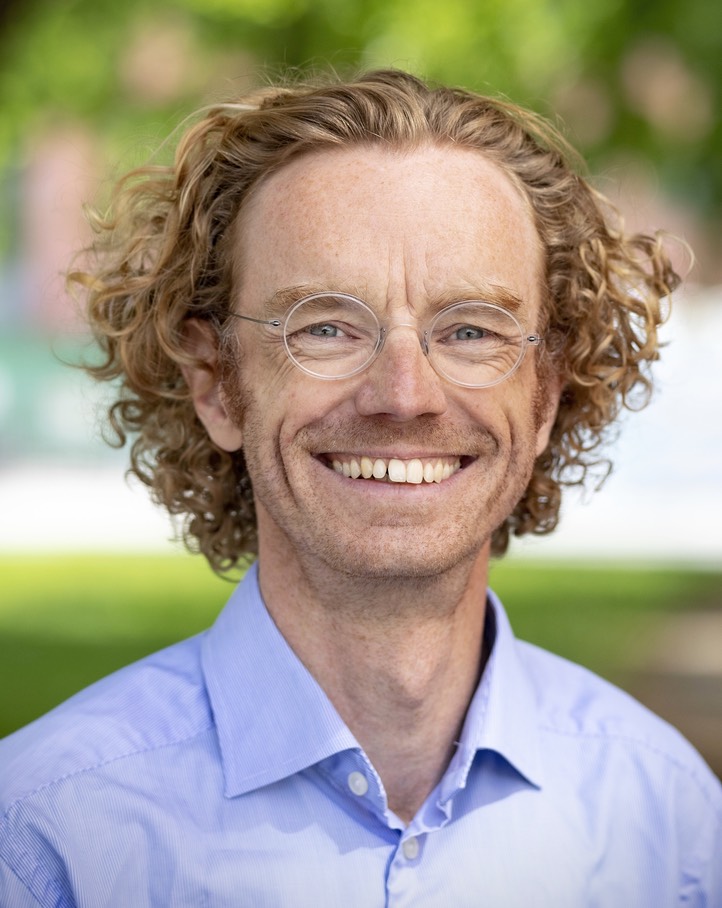 While deep learning-based classification is generally addressed using standardized approaches, this is really not the case when it comes to the study of regression problems. There are currently several different approaches used for regression and there is still room for innovation. We have developed a general deep regression method with a clear probabilistic interpretation. The basic building block in our construction is an energy-based model of the conditional output density p(y|x), where we use a deep neural network to predict the un-normalized density from input-output pairs (x, y). Such a construction is also commonly referred to as an implicit representation. The resulting learning problem is challenging and we offer some insights on how to deal with it. We show good performance on several computer vision regression tasks, system identification problems and 3D object detection using laser data.
While deep learning-based classification is generally addressed using standardized approaches, this is really not the case when it comes to the study of regression problems. There are currently several different approaches used for regression and there is still room for innovation. We have developed a general deep regression method with a clear probabilistic interpretation. The basic building block in our construction is an energy-based model of the conditional output density p(y|x), where we use a deep neural network to predict the un-normalized density from input-output pairs (x, y). Such a construction is also commonly referred to as an implicit representation. The resulting learning problem is challenging and we offer some insights on how to deal with it. We show good performance on several computer vision regression tasks, system identification problems and 3D object detection using laser data.
-
- Date & Time: Thursday, December 9, 2021; 100pm-5:30pm (EST)
Location: Virtual Event
Research Areas: Applied Physics, Artificial Intelligence, Communications, Computational Sensing, Computer Vision, Control, Data Analytics, Dynamical Systems, Electric Systems, Electronic and Photonic Devices, Machine Learning, Multi-Physical Modeling, Optimization, Robotics, Signal Processing, Speech & Audio, Digital Video, Human-Computer Interaction, Information Security
Brief - Mitsubishi Electric Research Laboratories cordially invites you to join our Virtual Open House, on December 9, 2021, 1:00pm - 5:30pm (EST).
The event will feature keynotes, live sessions, research area booths, and time for open interactions with our researchers. Join us to learn more about who we are, what we do, and discuss our internship and employment opportunities.
Registration: https://mailchi.mp/merl/merlvoh2021
-
- Date & Time: Tuesday, November 2, 2021; 1:00 PM EST
Speaker: Dr. Hsiao-Yu (Fish) Tung, MIT BCS
Research Areas: Artificial Intelligence, Computer Vision, Machine Learning, Robotics
Abstract 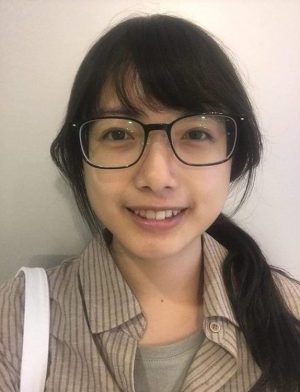 Current state-of-the-art CNNs can localize and name objects in internet photos, yet, they miss the basic knowledge that a two-year-old toddler has possessed: objects persist over time despite changes in the observer’s viewpoint or during cross-object occlusions; objects have 3D extent; solid objects do not pass through each other. In this talk, I will introduce neural architectures that learn to parse video streams of a static scene into world-centric 3D feature maps by disentangling camera motion from scene appearance. I will show the proposed architectures learn object permanence, can imagine RGB views from novel viewpoints in truly novel scenes, can conduct basic spatial reasoning and planning, can infer affordability in sentences, and can learn geometry-aware 3D concepts that allow pose-aware object recognition to happen with weak/sparse labels. Our experiments suggest that the proposed architectures are essential for the models to generalize across objects and locations, and it overcomes many limitations of 2D CNNs. I will show how we can use the proposed 3D representations to build machine perception and physical understanding more close to humans.
Current state-of-the-art CNNs can localize and name objects in internet photos, yet, they miss the basic knowledge that a two-year-old toddler has possessed: objects persist over time despite changes in the observer’s viewpoint or during cross-object occlusions; objects have 3D extent; solid objects do not pass through each other. In this talk, I will introduce neural architectures that learn to parse video streams of a static scene into world-centric 3D feature maps by disentangling camera motion from scene appearance. I will show the proposed architectures learn object permanence, can imagine RGB views from novel viewpoints in truly novel scenes, can conduct basic spatial reasoning and planning, can infer affordability in sentences, and can learn geometry-aware 3D concepts that allow pose-aware object recognition to happen with weak/sparse labels. Our experiments suggest that the proposed architectures are essential for the models to generalize across objects and locations, and it overcomes many limitations of 2D CNNs. I will show how we can use the proposed 3D representations to build machine perception and physical understanding more close to humans.
-
- Date & Time: Tuesday, October 12, 2021; 1:00 PM EST
Speaker: Prof. Greg Ongie, Marquette University
MERL Host: Hassan Mansour
Research Areas: Computational Sensing, Machine Learning, Signal Processing
Abstract 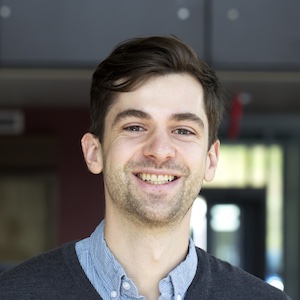 Deep learning is emerging as powerful tool to solve challenging inverse problems in computational imaging, including basic image restoration tasks like denoising and deblurring, as well as image reconstruction problems in medical imaging. This talk will give an overview of the state-of-the-art supervised learning techniques in this area and discuss two recent innovations: deep equilibrium architectures, which allows one to train an effectively infinite-depth reconstruction network; and model adaptation methods, that allow one to adapt a pre-trained reconstruction network to changes in the imaging forward model at test time.
Deep learning is emerging as powerful tool to solve challenging inverse problems in computational imaging, including basic image restoration tasks like denoising and deblurring, as well as image reconstruction problems in medical imaging. This talk will give an overview of the state-of-the-art supervised learning techniques in this area and discuss two recent innovations: deep equilibrium architectures, which allows one to train an effectively infinite-depth reconstruction network; and model adaptation methods, that allow one to adapt a pre-trained reconstruction network to changes in the imaging forward model at test time.
-
- Date & Time: Tuesday, September 28, 2021; 1:00 PM EST
Speaker: Dr. Ruohan Gao, Stanford University
MERL Host: Gordon Wichern
Research Areas: Computer Vision, Machine Learning, Speech & Audio
Abstract 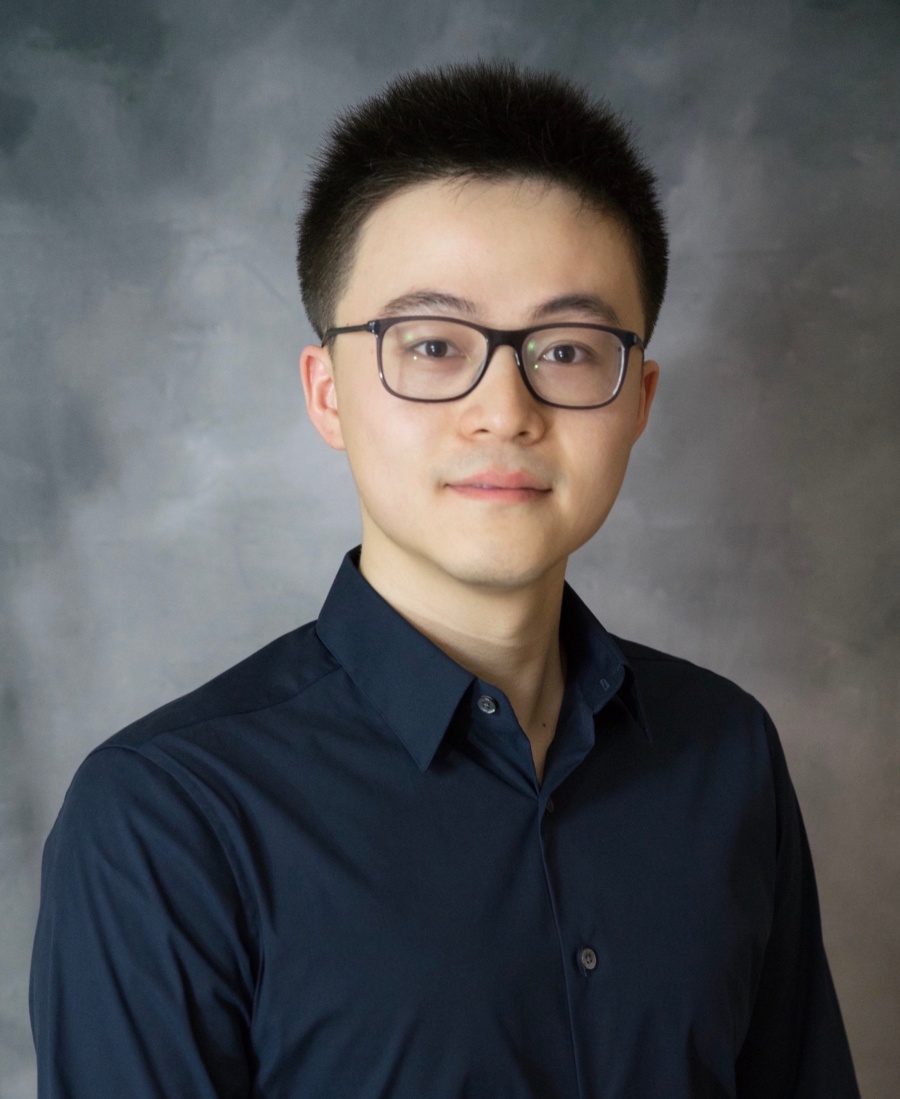 While computer vision has made significant progress by "looking" — detecting objects, actions, or people based on their appearance — it often does not listen. Yet cognitive science tells us that perception develops by making use of all our senses without intensive supervision. Towards this goal, in this talk I will present my research on audio-visual learning — We disentangle object sounds from unlabeled video, use audio as an efficient preview for action recognition in untrimmed video, decode the monaural soundtrack into its binaural counterpart by injecting visual spatial information, and use echoes to interact with the environment for spatial image representation learning. Together, these are steps towards multimodal understanding of the visual world, where audio serves as both the semantic and spatial signals. In the end, I will also briefly talk about our latest work on multisensory learning for robotics.
While computer vision has made significant progress by "looking" — detecting objects, actions, or people based on their appearance — it often does not listen. Yet cognitive science tells us that perception develops by making use of all our senses without intensive supervision. Towards this goal, in this talk I will present my research on audio-visual learning — We disentangle object sounds from unlabeled video, use audio as an efficient preview for action recognition in untrimmed video, decode the monaural soundtrack into its binaural counterpart by injecting visual spatial information, and use echoes to interact with the environment for spatial image representation learning. Together, these are steps towards multimodal understanding of the visual world, where audio serves as both the semantic and spatial signals. In the end, I will also briefly talk about our latest work on multisensory learning for robotics.
-
- Date & Time: Tuesday, September 14, 2021; 1:00 PM EST
Speaker: Prof. David Bergman, University of Connecticut
MERL Host: Arvind Raghunathan
Research Areas: Data Analytics, Machine Learning, Optimization
Abstract 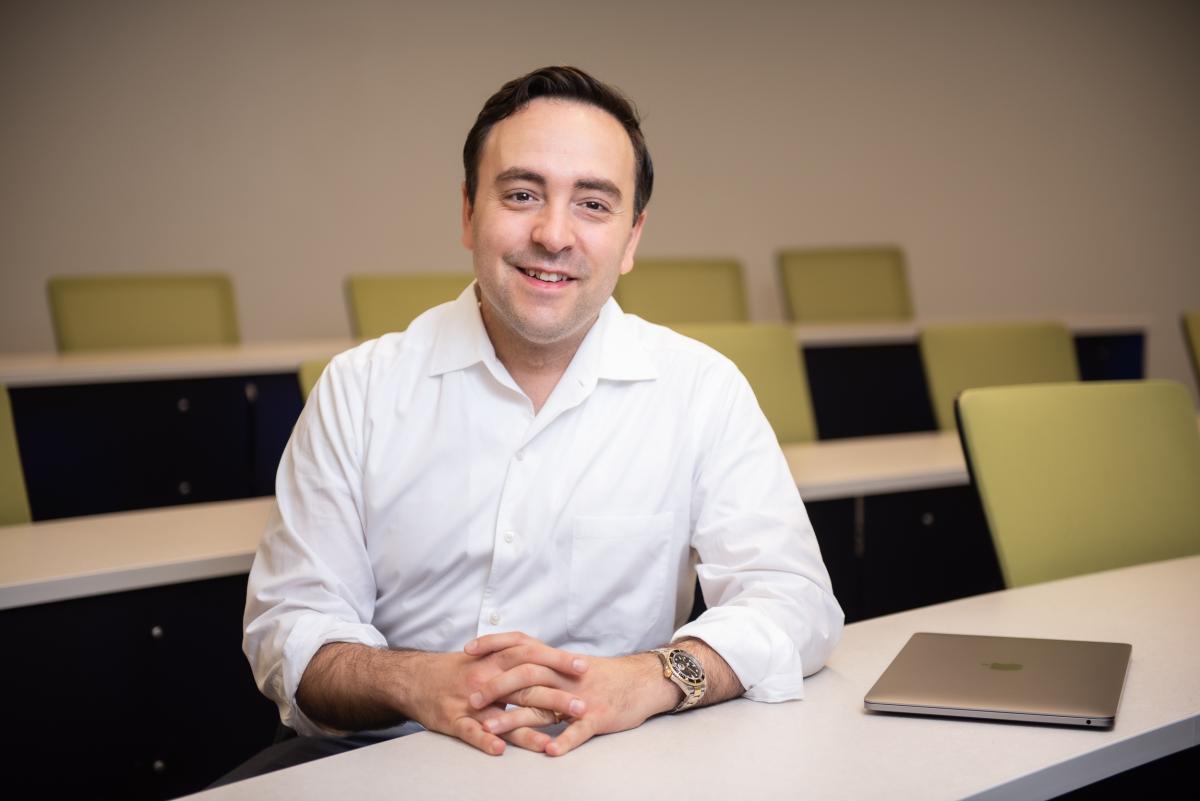 The integration of machine learning and optimization opens the door to new modeling paradigms that have already proven successful across a broad range of industries. Sports betting is a particularly exciting application area, where recent advances in both analytics and optimization can provide a lucrative edge. In this talk we will discuss three algorithmic sports betting games where combinations of machine learning and optimization have netted me significant winnings.
The integration of machine learning and optimization opens the door to new modeling paradigms that have already proven successful across a broad range of industries. Sports betting is a particularly exciting application area, where recent advances in both analytics and optimization can provide a lucrative edge. In this talk we will discuss three algorithmic sports betting games where combinations of machine learning and optimization have netted me significant winnings.
-
- Date & Time: Tuesday, February 16, 2021; 11:00-12:00
Speaker: Prof. Pere Gilabert, Universitat Politecnica de Catalunya, Barcelona, Spain
Research Areas: Communications, Electronic and Photonic Devices, Machine Learning, Signal Processing
Abstract - Digital predistortion (DPD) linearization is the most common and spread solution to cope with power amplifiers (PA) inherent linearity versus efficiency trade-off. The use of new radio 5G spectrally efficient signals with high peak-to-average power ratios (PAPR) occupying wider bandwidths only aggravates such compromise. When considering wide bandwidth signals, carrier aggregation or multi-band configurations in high efficient transmitter architectures, such as Doherty PAs, load-modulated balanced amplifiers, envelope tracking PAs or outphasing transmitters, the number of parameters required in the DPD model to compensate for both nonlinearities and memory effects can be unacceptably high. This has a negative impact in the DPD model extraction/adaptation, because it increases the computational complexity and drives to over-fitting and uncertainty.
This talk will discuss the use of machine learning techniques for DPD linearization. The use of artificial neural networks (ANNs) for adaptive DPD linearization and approaches to reduce the coefficients adaptation time will be discussed. In addition, an overview on several feature-extraction techniques used to reduce the number of parameters of the DPD linearization system as well as to ensure proper, well-conditioned estimation for related variables will be presented.
-
- Date & Time: Wednesday, December 9, 2020; 1:00-5:00PM EST
Location: Virtual
MERL Contacts: Elizabeth Phillips; Anthony Vetro
Research Areas: Applied Physics, Artificial Intelligence, Communications, Computational Sensing, Computer Vision, Control, Data Analytics, Dynamical Systems, Electric Systems, Electronic and Photonic Devices, Machine Learning, Multi-Physical Modeling, Optimization, Robotics, Signal Processing, Speech & Audio
-
- Date & Time: Tuesday, July 14, 2020; 11:00 AM
Speaker: Hanrui Wang, MIT
Research Areas: Electronic and Photonic Devices, Machine Learning
Abstract - Automatic transistor sizing is a challenging problem in circuit design due to the large design space, complex performance trade-offs, and fast technological advancements. Although there has been plenty of work on transistor sizing targeting on one circuit, limited research has been done on transferring the knowledge from one circuit to another to reduce the re-design overhead. In this work, we present GCN-RL Circuit Designer, leveraging reinforcement learning (RL) to transfer the knowledge between different technology nodes and topologies. Moreover, inspired by the simple fact that circuit is a graph, we learn on the circuit topology representation with graph convolutional neural networks (GCN). The GCN-RL agent extracts features of the topology graph whose vertices are transistors, edges are wires. Our learning-based optimization consistently achieves the highest Figures of Merit (FoM) on four different circuits compared with conventional black-box optimization methods (Bayesian Optimization, Evolutionary Algorithms), random search, and human expert designs. Experiments on transfer learning between five technology nodes and two circuit topologies demonstrate that RL with transfer learning can achieve much higher FoMs than methods without knowledge transfer. Our transferable optimization method makes transistor sizing and design porting more effective and efficient. The work is accepted to DAC 2020.
-
- Date & Time: Thursday, May 7, 2020; 11:00 AM
Speaker: Prof. Petar Popovski, Aalborg University, Denmark
MERL Host: Toshiaki Koike-Akino
Research Areas: Artificial Intelligence, Communications, Machine Learning, Signal Processing, Information Security
Abstract  The wireless landscape evolves towards supporting a large population of connections for humans and machines with very diverse features and requirements. Perhaps the main motivation of 5G wireless systems is its flexibility to support heterogeneous connectivity requirements: enhanced mobile broadband (eMBB), massive machine-type communications (mMTC), and ultra-reliable low-latency communications (URLLC). However, this classification is rather limited and is currently undergoing a revision within the research community. The first part of this talk will discuss how this heterogeneity can be revised and which opportunities it opens with respect to spectrum usage. The second part of the talk will deal with performance guarantees of wireless services and, specifically, ultra-reliable communication and outline the importance of machine learning in that context. The final part of the talk will provide a broader view on the evolution of wireless connectivity, including aspects that are implied by the resistance to the deployment of 5G, but also the new opportunities that can transform the way we build and utilize connected systems.
The wireless landscape evolves towards supporting a large population of connections for humans and machines with very diverse features and requirements. Perhaps the main motivation of 5G wireless systems is its flexibility to support heterogeneous connectivity requirements: enhanced mobile broadband (eMBB), massive machine-type communications (mMTC), and ultra-reliable low-latency communications (URLLC). However, this classification is rather limited and is currently undergoing a revision within the research community. The first part of this talk will discuss how this heterogeneity can be revised and which opportunities it opens with respect to spectrum usage. The second part of the talk will deal with performance guarantees of wireless services and, specifically, ultra-reliable communication and outline the importance of machine learning in that context. The final part of the talk will provide a broader view on the evolution of wireless connectivity, including aspects that are implied by the resistance to the deployment of 5G, but also the new opportunities that can transform the way we build and utilize connected systems.
-
- Date & Time: Thursday, May 7, 2020; 12:00 PM
Speaker: Christopher Rackauckas, MIT
MERL Host: Christopher R. Laughman
Research Areas: Machine Learning, Multi-Physical Modeling, Optimization
Abstract - In the context of science, the well-known adage "a picture is worth a thousand words" might well be "a model is worth a thousand datasets." Scientific models, such as Newtonian physics or biological gene regulatory networks, are human-driven simplifications of complex phenomena that serve as surrogates for the countless experiments that validated the models. Recently, machine learning has been able to overcome the inaccuracies of approximate modeling by directly learning the entire set of nonlinear interactions from data. However, without any predetermined structure from the scientific basis behind the problem, machine learning approaches are flexible but data-expensive, requiring large databases of homogeneous labeled training data. A central challenge is reco nciling data that is at odds with simplified models without requiring "big data". In this talk we discuss a new methodology, universal differential equations (UDEs), which augment scientific models with machine-learnable structures for scientifically-based learning. We show how UDEs can be utilized to discover previously unknown governing equations, accurately extrapolate beyond the original data, and accelerate model simulation, all in a time and data-efficient manner. This advance is coupled with open-source software that allows for training UDEs which incorporate physical constraints, delayed interactions, implicitly-defined events, and intrinsic stochasticity in the model. Our examples show how a diverse set of computationally-difficult modeling issues across scientific disciplines, from automatically discovering biological mechanisms to accelerating climate simulations by 15,000x, can be handled by training UDEs.
-
- Date & Time: Tuesday, July 16, 2019; 12:00 PM
Speaker: Prof. Jeff Linderoth, University of Wisconsin-Madison
MERL Host: Arvind Raghunathan
Research Areas: Machine Learning, Optimization
Abstract  Algorithms to solve mixed integer linear programs have made incredible progress in the past 20 years. Key to these advances has been a mathematical analysis of the structure of the set of feasible solutions. We argue that a similar analysis is required in the case of mixed integer quadratic programs, like those that arise in sparse optimization in machine learning. One such analysis leads to the so-called perspective relaxation, which significantly improves solution performance on separable instances. Extensions of the perspective reformulation can lead to algorithms that are equivalent to some of the most popular, modern, sparsity-inducing non-convex regularizations in variable selection. Based on joint work with Hongbo Dong (Washington State Univ. ), Oktay Gunluk (IBM), and Kun Chen (Univ. Connecticut).
Algorithms to solve mixed integer linear programs have made incredible progress in the past 20 years. Key to these advances has been a mathematical analysis of the structure of the set of feasible solutions. We argue that a similar analysis is required in the case of mixed integer quadratic programs, like those that arise in sparse optimization in machine learning. One such analysis leads to the so-called perspective relaxation, which significantly improves solution performance on separable instances. Extensions of the perspective reformulation can lead to algorithms that are equivalent to some of the most popular, modern, sparsity-inducing non-convex regularizations in variable selection. Based on joint work with Hongbo Dong (Washington State Univ. ), Oktay Gunluk (IBM), and Kun Chen (Univ. Connecticut).
-
- Date: Wednesday, September 26, 2018 - Friday, September 28, 2018
Location: Houston, Texas
MERL Contacts: Chiori Hori; Elizabeth Phillips
Research Areas: Artificial Intelligence, Computer Vision, Machine Learning
Brief - "MERL, in partnership with Mitsubishi Electric was a Gold Sponsor of the Grace Hopper Celebration 2018 (GHC18) held in Houston, TX on September 26-28th. Presented by AnitaB.org and the Association for Computing Machinery, this is world's largest gathering of women technologists. Chiori Hori and Elizabeth Phillips from MERL, and Yoshiyuki Umei, Jared Baker and Lien Randle from MEUS, proudly represented Mitsubishi Electric at the recruiting expo, that drew over 20,000 female technologists this year.
-
- Date & Time: Thursday, November 29, 2018; 4-6pm
Location: 201 Broadway, 8th floor, Cambridge, MA
MERL Contacts: Elizabeth Phillips; Anthony Vetro
Research Areas: Applied Physics, Artificial Intelligence, Communications, Computational Sensing, Computer Vision, Control, Data Analytics, Dynamical Systems, Electric Systems, Electronic and Photonic Devices, Machine Learning, Multi-Physical Modeling, Optimization, Robotics, Signal Processing, Speech & Audio
Brief - Snacks, demos, science: On Thursday 11/29, Mitsubishi Electric Research Labs (MERL) will host an open house for graduate+ students interested in internships, post-docs, and research scientist positions. The event will be held from 4-6pm and will feature demos & short presentations in our main areas of research including artificial intelligence, robotics, computer vision, speech processing, optimization, machine learning, data analytics, signal processing, communications, sensing, control and dynamical systems, as well as multi-physyical modeling and electronic devices. MERL is a high impact publication-oriented research lab with very extensive internship and university collaboration programs. Most internships lead to publication; many of our interns and staff have gone on to notable careers at MERL and in academia. Come mix with our researchers, see our state of the art technologies, and learn about our research opportunities. Dress code: casual, with resumes.
Pre-registration for the event is strongly encouraged:
merlopenhouse.eventbrite.com
Current internship and employment openings:
www.merl.com/internship/openings
www.merl.com/employment/employment
Information about working at MERL:
www.merl.com/employment.
-
- Date & Time: Friday, February 2, 2018; 12:00
Speaker: Dr. David Kaeli, Northeastern University
MERL Host: Abraham Goldsmith
Research Areas: Control, Optimization, Machine Learning, Speech & Audio
Abstract 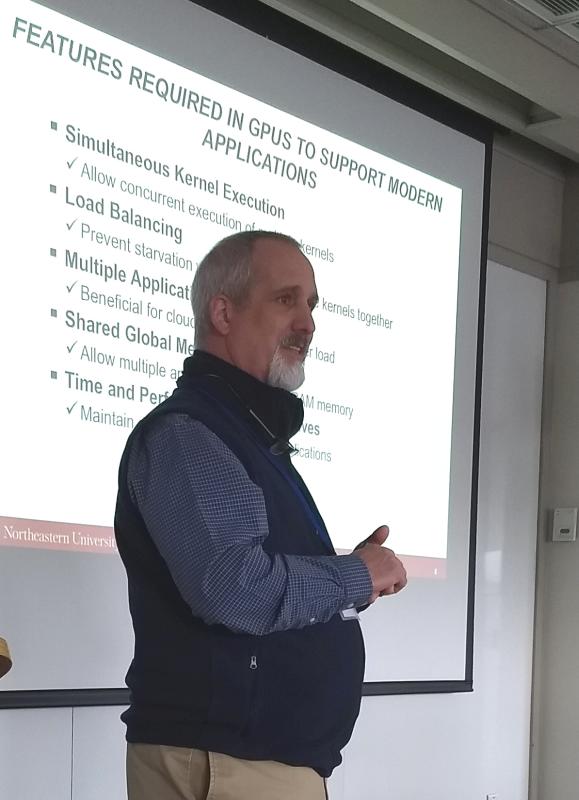 GPU computing is alive and well! The GPU has allowed researchers to overcome a number of computational barriers in important problem domains. But still, there remain challenges to use a GPU to target more general purpose applications. GPUs achieve impressive speedups when compared to CPUs, since GPUs have a large number of compute cores and high memory bandwidth. Recent GPU performance is approaching 10 teraflops of single precision performance on a single device. In this talk we will discuss current trends with GPUs, including some advanced features that allow them exploit multi-context grains of parallelism. Further, we consider how GPUs can be treated as cloud-based resources, enabling a GPU-enabled server to deliver HPC cloud services by leveraging virtualization and collaborative filtering. Finally, we argue for for new heterogeneous workloads and discuss the role of the Heterogeneous Systems Architecture (HSA), a standard that further supports integration of the CPU and GPU into a common framework. We present a new class of benchmarks specifically tailored to evaluate the benefits of features supported in the new HSA programming model.
GPU computing is alive and well! The GPU has allowed researchers to overcome a number of computational barriers in important problem domains. But still, there remain challenges to use a GPU to target more general purpose applications. GPUs achieve impressive speedups when compared to CPUs, since GPUs have a large number of compute cores and high memory bandwidth. Recent GPU performance is approaching 10 teraflops of single precision performance on a single device. In this talk we will discuss current trends with GPUs, including some advanced features that allow them exploit multi-context grains of parallelism. Further, we consider how GPUs can be treated as cloud-based resources, enabling a GPU-enabled server to deliver HPC cloud services by leveraging virtualization and collaborative filtering. Finally, we argue for for new heterogeneous workloads and discuss the role of the Heterogeneous Systems Architecture (HSA), a standard that further supports integration of the CPU and GPU into a common framework. We present a new class of benchmarks specifically tailored to evaluate the benefits of features supported in the new HSA programming model.
-
- Date: Thursday, June 1, 2017
Location: IEEE Conference on Automatic Face and Gesture Recognition (FG 2017), Washington, DC
Speaker: Tim K. Marks
MERL Contact: Tim K. Marks
Research Area: Machine Learning
Brief - MERL Senior Principal Research Scientist Tim K. Marks will give the invited lunch talk on Thursday, June 1, at the IEEE International Conference on Automatic Face and Gesture Recognition (FG 2017). The talk is entitled "Robust Real-Time 3D Head Pose and 2D Face Alignment.".
-
- Date & Time: Tuesday, December 13, 2016; Noon
Speaker: Yue M. Lu, John A. Paulson School of Engineering and Applied Sciences, Harvard University
MERL Host: Petros T. Boufounos
Research Areas: Computational Sensing, Machine Learning
Abstract 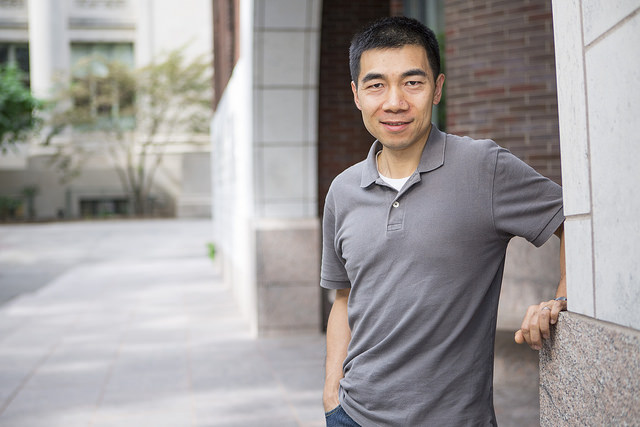 In this talk, we will present a framework for analyzing, in the high-dimensional limit, the exact dynamics of several stochastic optimization algorithms that arise in signal and information processing. For concreteness, we consider two prototypical problems: sparse principal component analysis and regularized linear regression (e.g. LASSO). For each case, we show that the time-varying estimates given by the algorithms will converge weakly to a deterministic "limiting process" in the high-dimensional limit. Moreover, this limiting process can be characterized as the unique solution of a nonlinear PDE, and it provides exact information regarding the asymptotic performance of the algorithms. For example, performance metrics such as the MSE, the cosine similarity and the misclassification rate in sparse support recovery can all be obtained by examining the deterministic limiting process. A steady-state analysis of the nonlinear PDE also reveals interesting phase transition phenomena related to the performance of the algorithms. Although our analysis is asymptotic in nature, numerical simulations show that the theoretical predictions are accurate for moderate signal dimensions.
In this talk, we will present a framework for analyzing, in the high-dimensional limit, the exact dynamics of several stochastic optimization algorithms that arise in signal and information processing. For concreteness, we consider two prototypical problems: sparse principal component analysis and regularized linear regression (e.g. LASSO). For each case, we show that the time-varying estimates given by the algorithms will converge weakly to a deterministic "limiting process" in the high-dimensional limit. Moreover, this limiting process can be characterized as the unique solution of a nonlinear PDE, and it provides exact information regarding the asymptotic performance of the algorithms. For example, performance metrics such as the MSE, the cosine similarity and the misclassification rate in sparse support recovery can all be obtained by examining the deterministic limiting process. A steady-state analysis of the nonlinear PDE also reveals interesting phase transition phenomena related to the performance of the algorithms. Although our analysis is asymptotic in nature, numerical simulations show that the theoretical predictions are accurate for moderate signal dimensions.
-
- Date: Saturday, December 10, 2016
Location: Centre Convencions Internacional Barcelona, Barcelona SPAIN
Research Areas: Machine Learning, Speech & Audio
Brief - MERL researcher John Hershey, is organizing a Workshop on End-to-End Speech and Audio Processing, on behalf of MERL's Speech and Audio team, and in collaboration with Philemon Brakel of the University of Montreal. The workshop focuses on recent advances to end-to-end deep learning methods to address alignment and structured prediction problems that naturally arise in speech and audio processing. The all day workshop takes place on Saturday, December 10th at NIPS 2016, in Barcelona, Spain.
-
- Date: Tuesday, December 13, 2016
Location: 2016 IEEE Spoken Language Technology Workshop, San Diego, California
Speaker: John Hershey, MERL
MERL Contact: Jonathan Le Roux
Research Areas: Machine Learning, Speech & Audio
Brief - MERL researcher John Hershey presents an invited tutorial at the 2016 IEEE Workshop on Spoken Language Technology, in San Diego, California. The topic, "developing novel deep neural network architectures from probabilistic models" stems from MERL work with collaborators Jonathan Le Roux and Shinji Watanabe, on a principled framework that seeks to improve our understanding of deep neural networks, and draws inspiration for new types of deep network from the arsenal of principles and tools developed over the years for conventional probabilistic models. The tutorial covers a range of parallel ideas in the literature that have formed a recent trend, as well as their application to speech and language.
-
- Date & Time: Wednesday, July 13, 2016; 2:30 PM - 3:30
Speaker: Richard Lehoucq, Sandia National Laboratories
Research Areas: Computer Vision, Digital Video, Machine Learning
Abstract 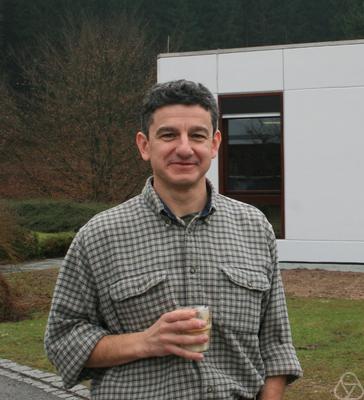 My presentation considers the research question of whether existing algorithms and software for the large-scale sparse eigenvalue problem can be applied to problems in spectral graph theory. I first provide an introduction to several problems involving spectral graph theory. I then provide a review of several different algorithms for the large-scale eigenvalue problem and briefly introduce the Anasazi package of eigensolvers.
My presentation considers the research question of whether existing algorithms and software for the large-scale sparse eigenvalue problem can be applied to problems in spectral graph theory. I first provide an introduction to several problems involving spectral graph theory. I then provide a review of several different algorithms for the large-scale eigenvalue problem and briefly introduce the Anasazi package of eigensolvers.
-
 Decision-making and adaptation to climate change requires quantitative projections of the physical climate system and an accurate understanding of the uncertainty in those projections. Earth system models (ESMs), which solve the Navier-Stokes equations on the sphere, are the only tool that climate scientists have to make projections forward into climate states that have not been observed in the historical data record. Yet, ESMs are incredibly complex and expensive codes and contain many poorly constrained physical parameters—for processes such as clouds and convection—that must be calibrated against observations. In this talk, I will describe research from my group that uses ensembles of ESM simulations to train statistical models that learn the behavior and sensitivities of the ESM. Once trained and validated the statistical models are essentially free to run, which allows climate modelling centers to make more efficient use of precious compute cycles. The aim is to improve the quality of future climate projections, by producing better calibrated ESMs, and to improve the quantification of the uncertainties, by better sampling the equifinality of climate states.
Decision-making and adaptation to climate change requires quantitative projections of the physical climate system and an accurate understanding of the uncertainty in those projections. Earth system models (ESMs), which solve the Navier-Stokes equations on the sphere, are the only tool that climate scientists have to make projections forward into climate states that have not been observed in the historical data record. Yet, ESMs are incredibly complex and expensive codes and contain many poorly constrained physical parameters—for processes such as clouds and convection—that must be calibrated against observations. In this talk, I will describe research from my group that uses ensembles of ESM simulations to train statistical models that learn the behavior and sensitivities of the ESM. Once trained and validated the statistical models are essentially free to run, which allows climate modelling centers to make more efficient use of precious compute cycles. The aim is to improve the quality of future climate projections, by producing better calibrated ESMs, and to improve the quantification of the uncertainties, by better sampling the equifinality of climate states. While deep learning-based classification is generally addressed using standardized approaches, this is really not the case when it comes to the study of regression problems. There are currently several different approaches used for regression and there is still room for innovation. We have developed a general deep regression method with a clear probabilistic interpretation. The basic building block in our construction is an energy-based model of the conditional output density p(y|x), where we use a deep neural network to predict the un-normalized density from input-output pairs (x, y). Such a construction is also commonly referred to as an implicit representation. The resulting learning problem is challenging and we offer some insights on how to deal with it. We show good performance on several computer vision regression tasks, system identification problems and 3D object detection using laser data.
While deep learning-based classification is generally addressed using standardized approaches, this is really not the case when it comes to the study of regression problems. There are currently several different approaches used for regression and there is still room for innovation. We have developed a general deep regression method with a clear probabilistic interpretation. The basic building block in our construction is an energy-based model of the conditional output density p(y|x), where we use a deep neural network to predict the un-normalized density from input-output pairs (x, y). Such a construction is also commonly referred to as an implicit representation. The resulting learning problem is challenging and we offer some insights on how to deal with it. We show good performance on several computer vision regression tasks, system identification problems and 3D object detection using laser data. Current state-of-the-art CNNs can localize and name objects in internet photos, yet, they miss the basic knowledge that a two-year-old toddler has possessed: objects persist over time despite changes in the observer’s viewpoint or during cross-object occlusions; objects have 3D extent; solid objects do not pass through each other. In this talk, I will introduce neural architectures that learn to parse video streams of a static scene into world-centric 3D feature maps by disentangling camera motion from scene appearance. I will show the proposed architectures learn object permanence, can imagine RGB views from novel viewpoints in truly novel scenes, can conduct basic spatial reasoning and planning, can infer affordability in sentences, and can learn geometry-aware 3D concepts that allow pose-aware object recognition to happen with weak/sparse labels. Our experiments suggest that the proposed architectures are essential for the models to generalize across objects and locations, and it overcomes many limitations of 2D CNNs. I will show how we can use the proposed 3D representations to build machine perception and physical understanding more close to humans.
Current state-of-the-art CNNs can localize and name objects in internet photos, yet, they miss the basic knowledge that a two-year-old toddler has possessed: objects persist over time despite changes in the observer’s viewpoint or during cross-object occlusions; objects have 3D extent; solid objects do not pass through each other. In this talk, I will introduce neural architectures that learn to parse video streams of a static scene into world-centric 3D feature maps by disentangling camera motion from scene appearance. I will show the proposed architectures learn object permanence, can imagine RGB views from novel viewpoints in truly novel scenes, can conduct basic spatial reasoning and planning, can infer affordability in sentences, and can learn geometry-aware 3D concepts that allow pose-aware object recognition to happen with weak/sparse labels. Our experiments suggest that the proposed architectures are essential for the models to generalize across objects and locations, and it overcomes many limitations of 2D CNNs. I will show how we can use the proposed 3D representations to build machine perception and physical understanding more close to humans. Deep learning is emerging as powerful tool to solve challenging inverse problems in computational imaging, including basic image restoration tasks like denoising and deblurring, as well as image reconstruction problems in medical imaging. This talk will give an overview of the state-of-the-art supervised learning techniques in this area and discuss two recent innovations: deep equilibrium architectures, which allows one to train an effectively infinite-depth reconstruction network; and model adaptation methods, that allow one to adapt a pre-trained reconstruction network to changes in the imaging forward model at test time.
Deep learning is emerging as powerful tool to solve challenging inverse problems in computational imaging, including basic image restoration tasks like denoising and deblurring, as well as image reconstruction problems in medical imaging. This talk will give an overview of the state-of-the-art supervised learning techniques in this area and discuss two recent innovations: deep equilibrium architectures, which allows one to train an effectively infinite-depth reconstruction network; and model adaptation methods, that allow one to adapt a pre-trained reconstruction network to changes in the imaging forward model at test time. While computer vision has made significant progress by "looking" — detecting objects, actions, or people based on their appearance — it often does not listen. Yet cognitive science tells us that perception develops by making use of all our senses without intensive supervision. Towards this goal, in this talk I will present my research on audio-visual learning — We disentangle object sounds from unlabeled video, use audio as an efficient preview for action recognition in untrimmed video, decode the monaural soundtrack into its binaural counterpart by injecting visual spatial information, and use echoes to interact with the environment for spatial image representation learning. Together, these are steps towards multimodal understanding of the visual world, where audio serves as both the semantic and spatial signals. In the end, I will also briefly talk about our latest work on multisensory learning for robotics.
While computer vision has made significant progress by "looking" — detecting objects, actions, or people based on their appearance — it often does not listen. Yet cognitive science tells us that perception develops by making use of all our senses without intensive supervision. Towards this goal, in this talk I will present my research on audio-visual learning — We disentangle object sounds from unlabeled video, use audio as an efficient preview for action recognition in untrimmed video, decode the monaural soundtrack into its binaural counterpart by injecting visual spatial information, and use echoes to interact with the environment for spatial image representation learning. Together, these are steps towards multimodal understanding of the visual world, where audio serves as both the semantic and spatial signals. In the end, I will also briefly talk about our latest work on multisensory learning for robotics. The integration of machine learning and optimization opens the door to new modeling paradigms that have already proven successful across a broad range of industries. Sports betting is a particularly exciting application area, where recent advances in both analytics and optimization can provide a lucrative edge. In this talk we will discuss three algorithmic sports betting games where combinations of machine learning and optimization have netted me significant winnings.
The integration of machine learning and optimization opens the door to new modeling paradigms that have already proven successful across a broad range of industries. Sports betting is a particularly exciting application area, where recent advances in both analytics and optimization can provide a lucrative edge. In this talk we will discuss three algorithmic sports betting games where combinations of machine learning and optimization have netted me significant winnings. The wireless landscape evolves towards supporting a large population of connections for humans and machines with very diverse features and requirements. Perhaps the main motivation of 5G wireless systems is its flexibility to support heterogeneous connectivity requirements: enhanced mobile broadband (eMBB), massive machine-type communications (mMTC), and ultra-reliable low-latency communications (URLLC). However, this classification is rather limited and is currently undergoing a revision within the research community. The first part of this talk will discuss how this heterogeneity can be revised and which opportunities it opens with respect to spectrum usage. The second part of the talk will deal with performance guarantees of wireless services and, specifically, ultra-reliable communication and outline the importance of machine learning in that context. The final part of the talk will provide a broader view on the evolution of wireless connectivity, including aspects that are implied by the resistance to the deployment of 5G, but also the new opportunities that can transform the way we build and utilize connected systems.
The wireless landscape evolves towards supporting a large population of connections for humans and machines with very diverse features and requirements. Perhaps the main motivation of 5G wireless systems is its flexibility to support heterogeneous connectivity requirements: enhanced mobile broadband (eMBB), massive machine-type communications (mMTC), and ultra-reliable low-latency communications (URLLC). However, this classification is rather limited and is currently undergoing a revision within the research community. The first part of this talk will discuss how this heterogeneity can be revised and which opportunities it opens with respect to spectrum usage. The second part of the talk will deal with performance guarantees of wireless services and, specifically, ultra-reliable communication and outline the importance of machine learning in that context. The final part of the talk will provide a broader view on the evolution of wireless connectivity, including aspects that are implied by the resistance to the deployment of 5G, but also the new opportunities that can transform the way we build and utilize connected systems. Algorithms to solve mixed integer linear programs have made incredible progress in the past 20 years. Key to these advances has been a mathematical analysis of the structure of the set of feasible solutions. We argue that a similar analysis is required in the case of mixed integer quadratic programs, like those that arise in sparse optimization in machine learning. One such analysis leads to the so-called perspective relaxation, which significantly improves solution performance on separable instances. Extensions of the perspective reformulation can lead to algorithms that are equivalent to some of the most popular, modern, sparsity-inducing non-convex regularizations in variable selection. Based on joint work with Hongbo Dong (Washington State Univ. ), Oktay Gunluk (IBM), and Kun Chen (Univ. Connecticut).
Algorithms to solve mixed integer linear programs have made incredible progress in the past 20 years. Key to these advances has been a mathematical analysis of the structure of the set of feasible solutions. We argue that a similar analysis is required in the case of mixed integer quadratic programs, like those that arise in sparse optimization in machine learning. One such analysis leads to the so-called perspective relaxation, which significantly improves solution performance on separable instances. Extensions of the perspective reformulation can lead to algorithms that are equivalent to some of the most popular, modern, sparsity-inducing non-convex regularizations in variable selection. Based on joint work with Hongbo Dong (Washington State Univ. ), Oktay Gunluk (IBM), and Kun Chen (Univ. Connecticut). GPU computing is alive and well! The GPU has allowed researchers to overcome a number of computational barriers in important problem domains. But still, there remain challenges to use a GPU to target more general purpose applications. GPUs achieve impressive speedups when compared to CPUs, since GPUs have a large number of compute cores and high memory bandwidth. Recent GPU performance is approaching 10 teraflops of single precision performance on a single device. In this talk we will discuss current trends with GPUs, including some advanced features that allow them exploit multi-context grains of parallelism. Further, we consider how GPUs can be treated as cloud-based resources, enabling a GPU-enabled server to deliver HPC cloud services by leveraging virtualization and collaborative filtering. Finally, we argue for for new heterogeneous workloads and discuss the role of the Heterogeneous Systems Architecture (HSA), a standard that further supports integration of the CPU and GPU into a common framework. We present a new class of benchmarks specifically tailored to evaluate the benefits of features supported in the new HSA programming model.
GPU computing is alive and well! The GPU has allowed researchers to overcome a number of computational barriers in important problem domains. But still, there remain challenges to use a GPU to target more general purpose applications. GPUs achieve impressive speedups when compared to CPUs, since GPUs have a large number of compute cores and high memory bandwidth. Recent GPU performance is approaching 10 teraflops of single precision performance on a single device. In this talk we will discuss current trends with GPUs, including some advanced features that allow them exploit multi-context grains of parallelism. Further, we consider how GPUs can be treated as cloud-based resources, enabling a GPU-enabled server to deliver HPC cloud services by leveraging virtualization and collaborative filtering. Finally, we argue for for new heterogeneous workloads and discuss the role of the Heterogeneous Systems Architecture (HSA), a standard that further supports integration of the CPU and GPU into a common framework. We present a new class of benchmarks specifically tailored to evaluate the benefits of features supported in the new HSA programming model. In this talk, we will present a framework for analyzing, in the high-dimensional limit, the exact dynamics of several stochastic optimization algorithms that arise in signal and information processing. For concreteness, we consider two prototypical problems: sparse principal component analysis and regularized linear regression (e.g. LASSO). For each case, we show that the time-varying estimates given by the algorithms will converge weakly to a deterministic "limiting process" in the high-dimensional limit. Moreover, this limiting process can be characterized as the unique solution of a nonlinear PDE, and it provides exact information regarding the asymptotic performance of the algorithms. For example, performance metrics such as the MSE, the cosine similarity and the misclassification rate in sparse support recovery can all be obtained by examining the deterministic limiting process. A steady-state analysis of the nonlinear PDE also reveals interesting phase transition phenomena related to the performance of the algorithms. Although our analysis is asymptotic in nature, numerical simulations show that the theoretical predictions are accurate for moderate signal dimensions.
In this talk, we will present a framework for analyzing, in the high-dimensional limit, the exact dynamics of several stochastic optimization algorithms that arise in signal and information processing. For concreteness, we consider two prototypical problems: sparse principal component analysis and regularized linear regression (e.g. LASSO). For each case, we show that the time-varying estimates given by the algorithms will converge weakly to a deterministic "limiting process" in the high-dimensional limit. Moreover, this limiting process can be characterized as the unique solution of a nonlinear PDE, and it provides exact information regarding the asymptotic performance of the algorithms. For example, performance metrics such as the MSE, the cosine similarity and the misclassification rate in sparse support recovery can all be obtained by examining the deterministic limiting process. A steady-state analysis of the nonlinear PDE also reveals interesting phase transition phenomena related to the performance of the algorithms. Although our analysis is asymptotic in nature, numerical simulations show that the theoretical predictions are accurate for moderate signal dimensions. My presentation considers the research question of whether existing algorithms and software for the large-scale sparse eigenvalue problem can be applied to problems in spectral graph theory. I first provide an introduction to several problems involving spectral graph theory. I then provide a review of several different algorithms for the large-scale eigenvalue problem and briefly introduce the Anasazi package of eigensolvers.
My presentation considers the research question of whether existing algorithms and software for the large-scale sparse eigenvalue problem can be applied to problems in spectral graph theory. I first provide an introduction to several problems involving spectral graph theory. I then provide a review of several different algorithms for the large-scale eigenvalue problem and briefly introduce the Anasazi package of eigensolvers.